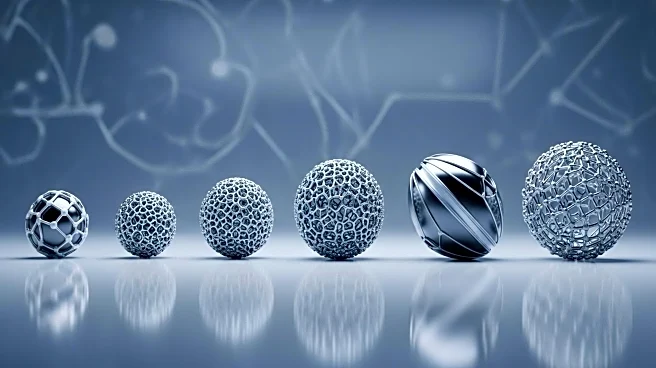What's Happening?
Researchers at Jilin University in China have discovered that mixing nanoparticles into common plastics can enhance their strength and toughness while maintaining ease of processing. The study, led by Hu-Jun Qian, addresses the 'plastics trilemma'—the challenge of making materials that are strong, tough, and easy to work with. By adding polystyrene nanoparticles to polymers like PEMA and PVC, the team found significant improvements in material performance, with PEMA showing a 50% increase in strength. Computer simulations revealed that nanoparticles redistribute within the material under stress, allowing for smoother deformation and easier flow when melted.
Why It's Important?
This breakthrough in plastic engineering could revolutionize industries reliant on durable and lightweight materials, such as automotive, aerospace, and biomedical sectors. The enhanced properties of these nanoparticle-infused plastics offer potential for more sustainable packaging solutions and advanced recyclable materials. By improving the mechanical properties of plastics without compromising their processability, manufacturers can produce higher quality products with reduced environmental impact, potentially leading to cost savings and increased efficiency in production.
What's Next?
The research team plans to scale up their approach, which is compatible with existing industrial processes, to produce large quantities of enhanced plastics. This strategy could lead to widespread adoption in various applications, including automotive and aerospace composites, sustainable packaging, and biomedical devices. As the technology advances, it may pave the way for new standards in plastic manufacturing, emphasizing durability and sustainability.









